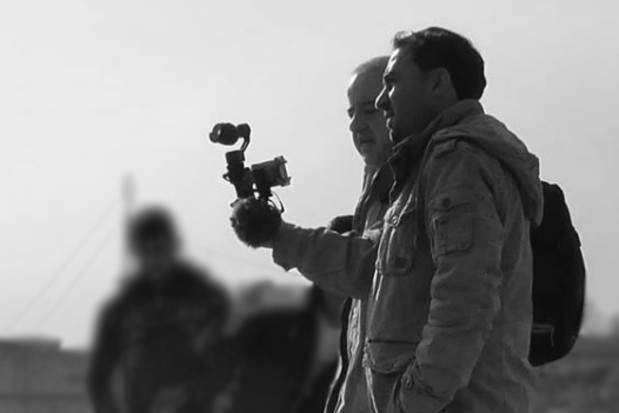From Uher tape machines to smartphones that can fit in your pocket, journalism production kit has come a long way. As mobile journalism (mojo) equipment is small and light, it allows reporters to get closer to the story, faster and more efficiently – but what are the disadvantages and challenges of this technology?
Nick Garnett, digital innovation reporter, BBC 5Live, explained that although there are many places in the world where people are completely familiar with using smartphones for photography regularly, there are certain areas where a journalist filming or recording audio with a mobile device could cause problems and put themselves at risk.
"There have been instances, especially in Africa, where you'd go up to somebody with a smartphone and it has taken people by surprise – they worry that you might be some type of terror-tourist," he said.
"Also, some of them feel that you're demeaning their story by using a low-cost device to report.
"What we are seeing is a complete 180-degree switch here, where reporters would be less of a risk using more traditional equipment – you just have to be culturally aware."
Garnett was recently tasked with producing videos and stills for social media and online from Erbil, Iraqi Kurdistan, where he had to alter his workflow as a mobile journalist not only in courtesy of the local culture, but for his safety as well.

"They are used to the ideas of newsgathering cameras, and are very protective of the press because they want to get their story told," he said.
"The challenge is identifying yourself as a journalist, and making sure they know what you are using to report – that's where the possibility of issues occurs with mobile journalism techniques.
"For years I have been extolling the virtues of small, hand-held devices, on the basis that they are non-intrusive, but here we have a situation where that could cause you more grief – frankly, you're holding a device that looks like a gun."
Garnett explained that as the country is very militarised, with guns part and parcel of everyday life, everything with a pistol grip, such as a gimbal, can look like a weapon from 100 metres away through the barrel of a sniper.
For years I have been extolling the virtues of small, hand-held devices, on the basis that they are non-intrusive, but here we have a situation where that could cause you more griefNick Garnett, BBC 5Live
Having taken this into account before travelling to Iraqi Kurdistan, Garnett went and bought a camera which looked very traditional, so that the locals would be immediately aware of what he was doing.
"There were times when I could use my Osmo gimbal, but it was severely curtailed as to where we could get that out. Even the case looks gun-like, which is always a worry when you go through airport security," he said.
"It looks militaristic in its black metal, with a bracket for a monitor and an eye that spins around on its own – it could be any device in the world, and you can understand why they are jittery about things like that."
Indeed, Garnett explained his equipment has been checked at numerous airports over the last fortnight, including Paris, Manchester, Erbil and Istanbul, with security staff wanting to turn it on and see how it works.
Even tripods can looked like military equipment to those unfamiliar with them, so Garnett tried to use his mojo equipment where he could – mostly in the camps, which were sniper-free areas, where he found people were interested in the technology.
"Outside of the camps, I went up to the Iraqi army position, as they were controlling the village that we were in, told them what we were doing, showed them what we were using, and made sure we showed our interviewees the kit before we started filming so they were familiar with it – you don't want any level of confrontation."

Although mobile journalism gives reporters the ability to upload footage directly to social media in a matter of seconds, Garnett explained that extra thought has to also be given to the publication of mojo material when in such situations.
"We took a decision that we would not go live on social media while we were in the camp," he said, adding that he also disabled geolocation for any footage in order to avoid revealing where they were.
They even scheduled their live radio broadcasts each day to coincide with a time when they were just about to leave the camp, doing everything with security and safety in mind, ensuring that any live broadcasting was planned and followed the ethics of livestreaming.
"The first time you do a hostile environment course in any organisation, I think everyone thinks they are a bit of a giggle and maybe a bit of an over-exaggeration, but you get on the ground and see that they are absolutely right," he said.
"You do need to take these things seriously because if someone is looking through a sniper rifle 200m away and they see someone pointing a device at a local person, who are they going to be more interested in?"
Free daily newsletter
If you like our news and feature articles, you can sign up to receive our free daily (Mon-Fri) email newsletter (mobile friendly).
Related articles
- Gear, apps and workflows: Rob Layton's complete mobile journalism checklist
- New project InOldNews wants to improve representation in video journalism
- 38 mojo apps from BBC trainer Marc Blank-Settle
- 15 online communities for journalists you should know about
- Ukrainian journalists use smartphones to tell stories of displaced communities












